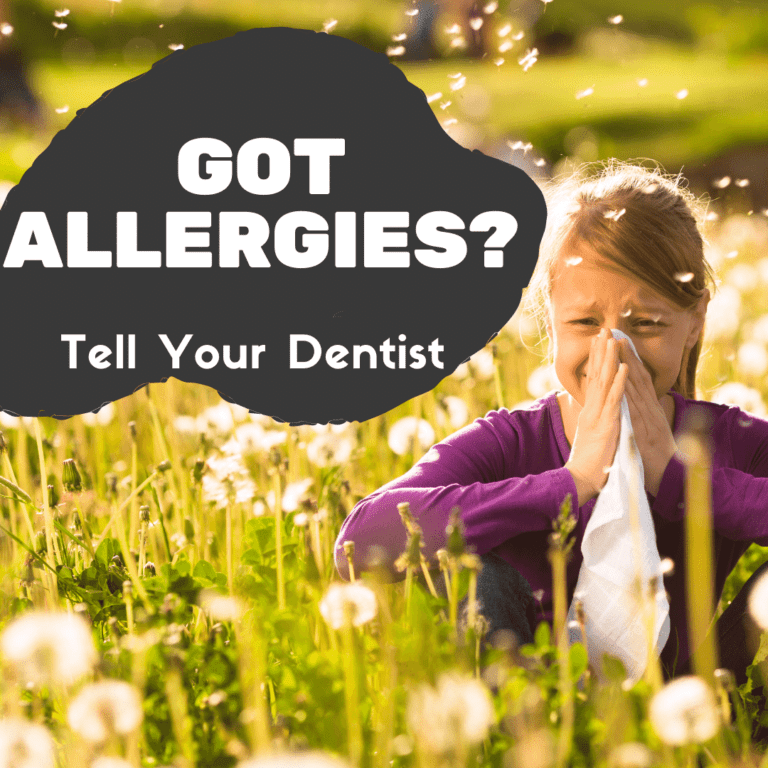Got Allergies? Tell Your Dentist

Did you know that the Allergy and Asthma Foundation of America estimates that 50 million Americans are affected by seasonal allergies every year? Did you also know that seasonal allergies can affect your oral health? Many people don’t realize that their seasonal allergies can affect their oral health, therefore they often forget to tell their dentist about their seasonal allergies. However, if you are one of the 50 million Americans who have seasonal allergies, it is imperative that you discuss this with your dentist.
In people with allergies, allergy season triggers a hyperactive immune response that results in the production of excess mucus. The extra mucus associated with seasonal allergies can then affect your oral health in three main ways. Specifically, seasonal allergies can cause:

Tooth Pain
Seasonal allergies can cause tooth pain by placing additional pressure on the roots of the upper teeth. This occurs because the sinuses begin to produce large amounts of mucus when triggered by allergens. The large amount of mucus produced then causes pressure to build up within the sinuses. Since the two largest sinus cavities happen to be just above the upper jaw on either side of the nose, this is where most of the pressure is felt. However, sinus pressure can also be felt in the tooth roots as tooth pain or sensitivity. In these cases, antihistamines are usually recommended to reduce sinus pressure and related toothaches.
Dry Mouth
Seasonal allergies are also often associated with dry mouth. One simple explanation for this is that many people switch to breathing through their mouth since they may be unable to breathe properly through an excessively stuffed up nose. Additionally, antihistamine medications also have dry mouth listed as a side effect since they work to dry up excess mucus. Unfortunately, dry mouth can increase your risk of developing tooth decay and gum disease since it means there is less saliva to cleanse your mouth. Luckily, taking a few steps to increase saliva production is an easy way to correct the flow of saliva. Such steps include: drinking water frequently, sucking on sugarless candies, or chewing gum with Xylitol.
Bad Breath
Due to a decrease in saliva production, bad breath can also occur as bacteria build up inside the mouth. Taking steps to keep your mouth moist is the best way to manage bad breath due to dry mouth. However, some cases of bad breath can also be caused by postnasal drip that occurs in the back of the throat. Unfortunately, since you cannot brush your throat like you would your teeth to control bacteria levels, it is harder to manage bad breath caused by postnasal drip. Instead, you can try gargling warm salt water because this kills bacteria and can help decrease odors associated with bad breath.






Recent Comments